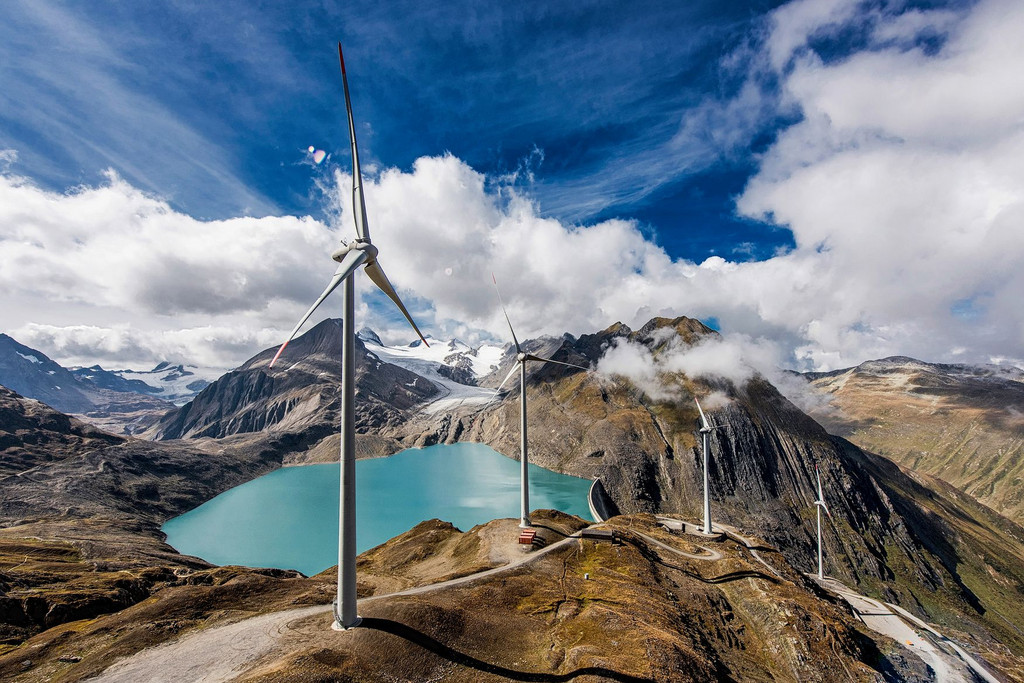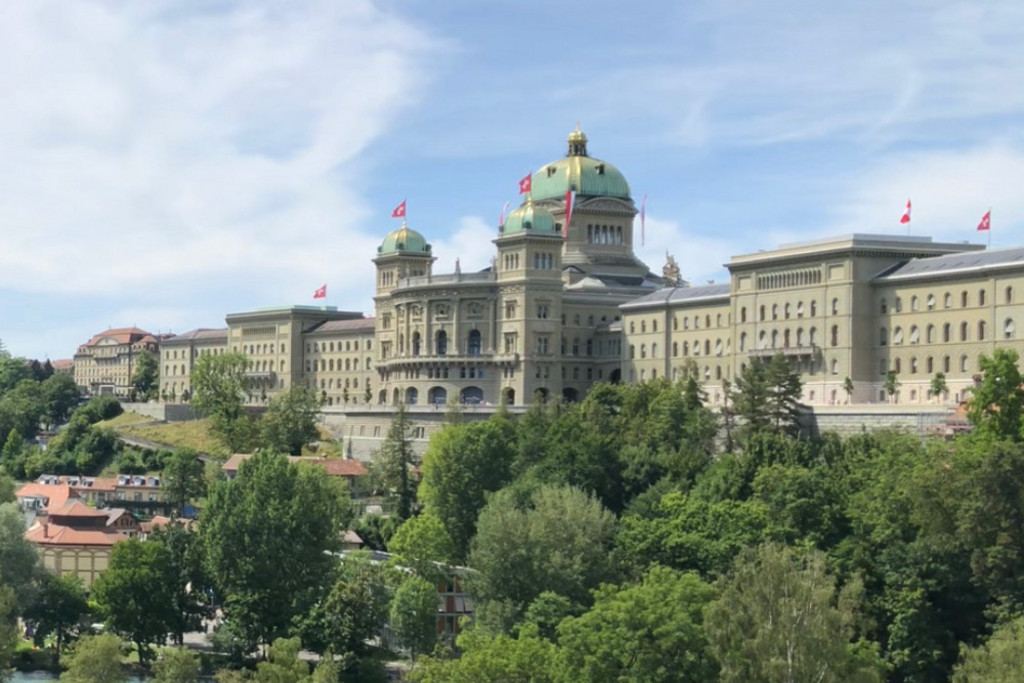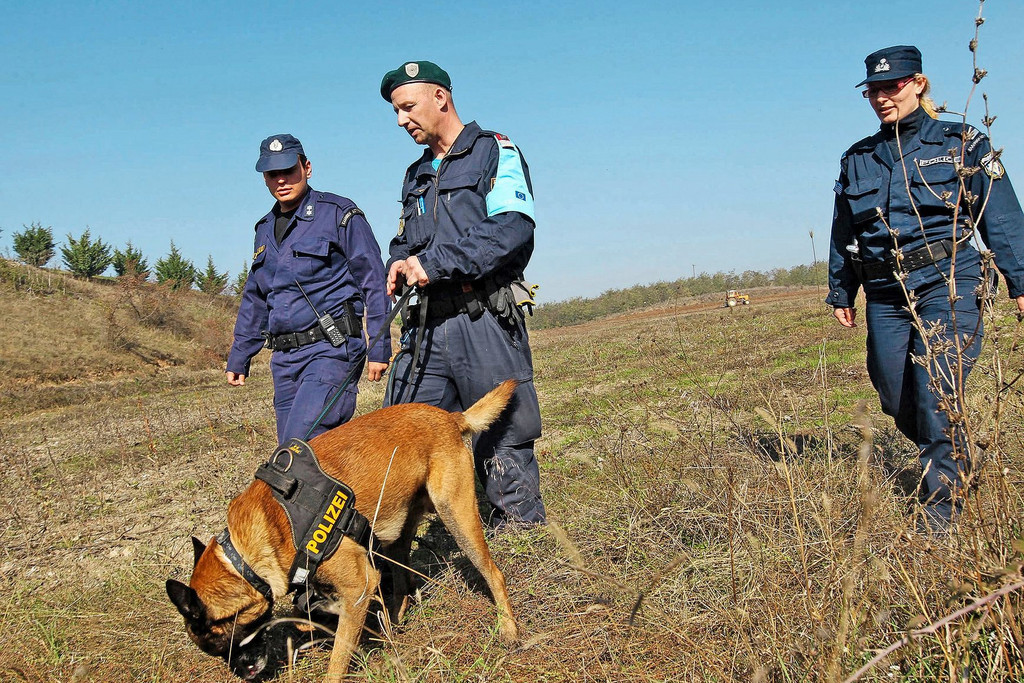Opponents of the new energy act laid it on thick – the front page of their propaganda pamphlet showed a woman shivering under the shower alongside the words: “Is it worth paying 3,200 Swiss francs more for a cold shower?” Inside, more questions were posed, such as: “Want a ban on bananas, coffee and meat because of excessive energy consumption?” The opposition’s message was clear – the implementation of the Energy Strategy 2050 would be expensive and reduce quality of life, lead to more bureaucracy and jeopardise energy supply.
But the fear campaign conducted by the Swiss People’s Party (SVP), which called the referendum against the bill, failed to achieve its goal. With 58.2 % in favour, the Swiss people supported the new energy act on 21 May 2017 by an unexpectedly clear margin. This is the first package of the Energy Strategy 2050. Its aim is to reduce energy consumption, increase energy efficiency and promote renewable energies, such as hydropower, solar, wind and geothermal energy and biomass. It also prohibits the construction of new nuclear power plants. The energy package is thus also a course-setting decision that goes back to the Fukushima nuclear disaster in 2011. However, it does not stipulate a decommissioning date and the plants can continue to operate for as long as they remain safe.
Energy supply undergoing transformation
Yet the change in energy policy is not simply an act of political will – it has long been taking place in Switzerland. Energy supply is undergoing transformation worldwide, too, and new technologies are developing extremely rapidly. It is just a question of whether and how this development should be structured. The Swiss nuclear power plants, some of which are very old, will be decommissioned over the next 25 years for economic and safety reasons, and fossil fuels will also be in short supply over the long term. BKW, for example, decided in 2016 to disconnect their nuclear power plant in Mühleberg from the grid at the end of 2019. This is partly why the politicians must establish the framework conditions to ensure national energy supply over the long term, and the economy needs planning certainty. The new energy act now ensures all of this to some degree.
But only to some degree. The new energy act does not enable the Energy Strategy 2050 to be fully implemented. Adhering to this strategy’s benchmarks – in other words, reducing energy consumption by 43 % by 2035 and significantly increasing the share of renewable energies – would require incentive taxes. There is currently little to suggest that this second step of the change in energy policy will be taken. The definitive decommissioning of the Mühleberg plant in 2020 will also reveal the extent to which the shortfall in electricity even at that point can be made up with renewable energies or whether this can only be achieved by importing more power. Swiss energy policy promises to remain a hot topic.
From “Nuclear Doris” to the architect of the energy transition
She was once known as “Nuclear Doris”. Swiss President Doris Leuthard got her nickname because a long time ago she sat on the board of a company that had a stake in a nuclear power plant. It was nevertheless Leuthard who as a member of the Federal Council proposed withdrawal from nuclear energy in 2011. It is down to her tenacity and ability to forge broad coalitions that Switzerland took the first step towards the eco-friendly energy transition in the referendum on 21 May.
The Federal Council’s longest-serving member has thus pulled off probably her greatest achievement at the ballot box. The combative, popular Federal Councillor, who has a deep understanding of her portfolio, has gone from one referendum victory to the next. Her referendum triumphs include the second Gotthard tunnel, the Railway Fund, the Motorways Fund, the Spatial Planning Act and the revised Radio and Television Act. The Swiss people have also followed her lead in rejecting a number of initiatives, such as the pro-public-service initiative and the popular requests for rapid withdrawal from nuclear energy and a green economy. The CVP politician and head of the influential Federal Department of the Environment, Transport, Energy and Communications is regarded as a strong woman in national government and is at the height of her career.





![[Translate to en:]](/fileadmin/_processed_/d/2/csm_Revue_202204_Huehnerfarm_SH-Reportage_3074_7901ca94df.jpg)




Comments
Comments :
Danke schön.
HSR